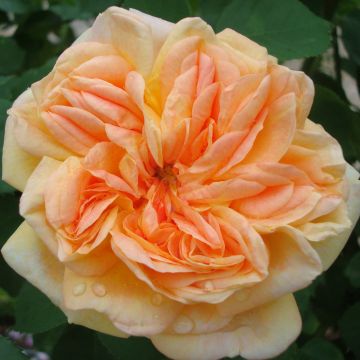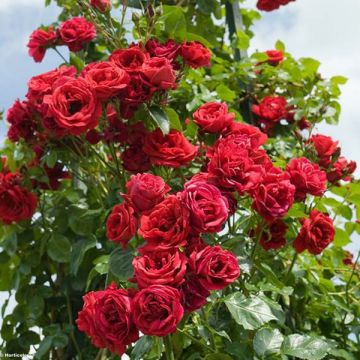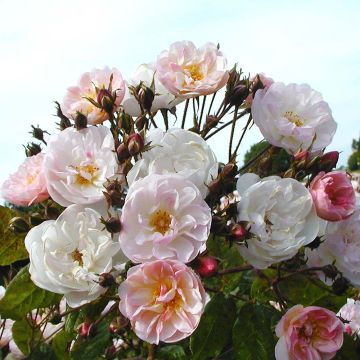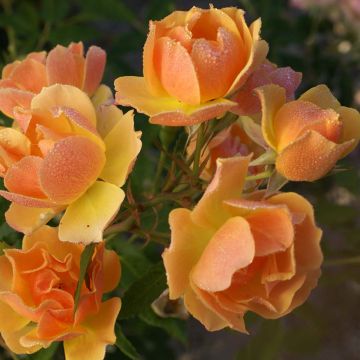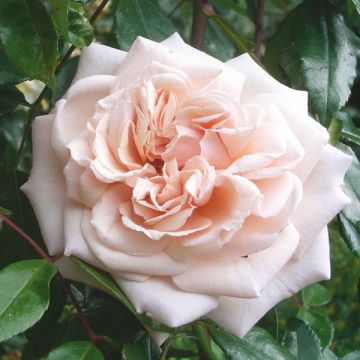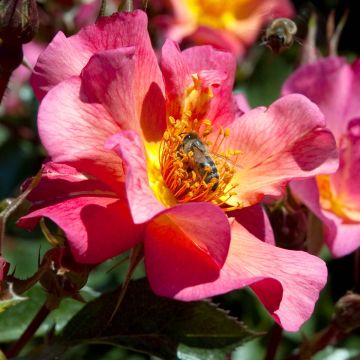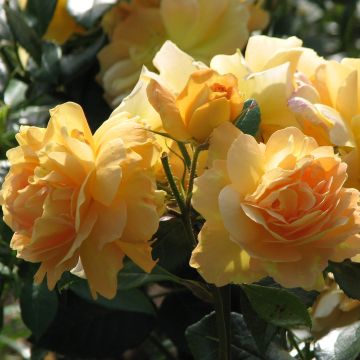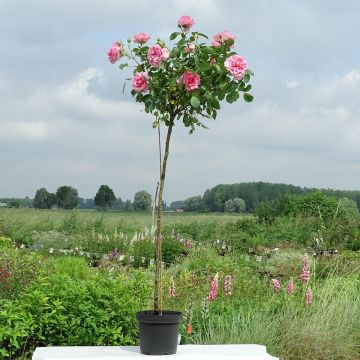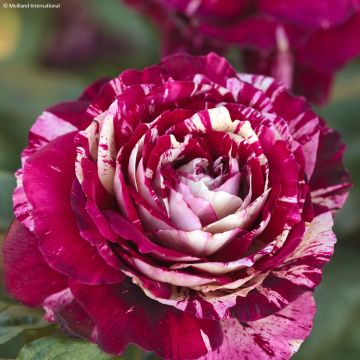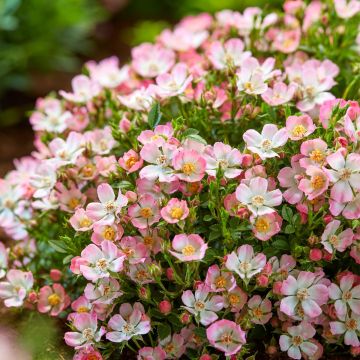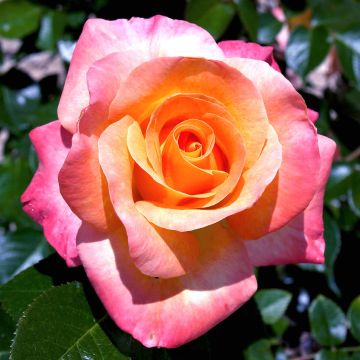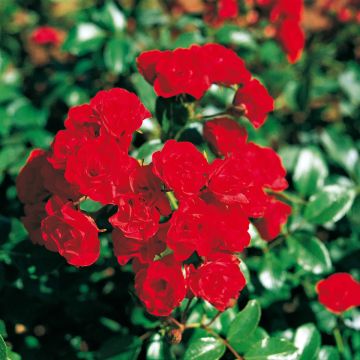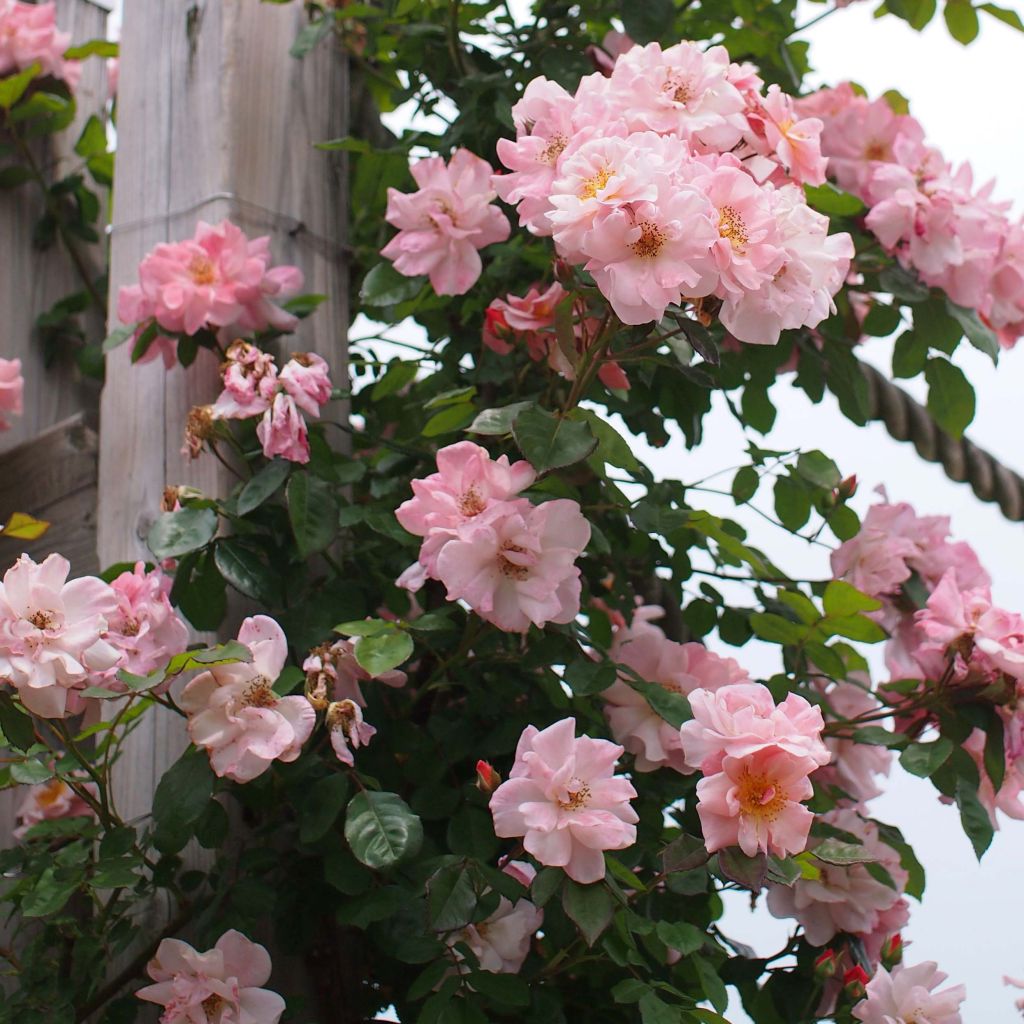

Rosa x floribunda Clair Matin - Climbing Rose
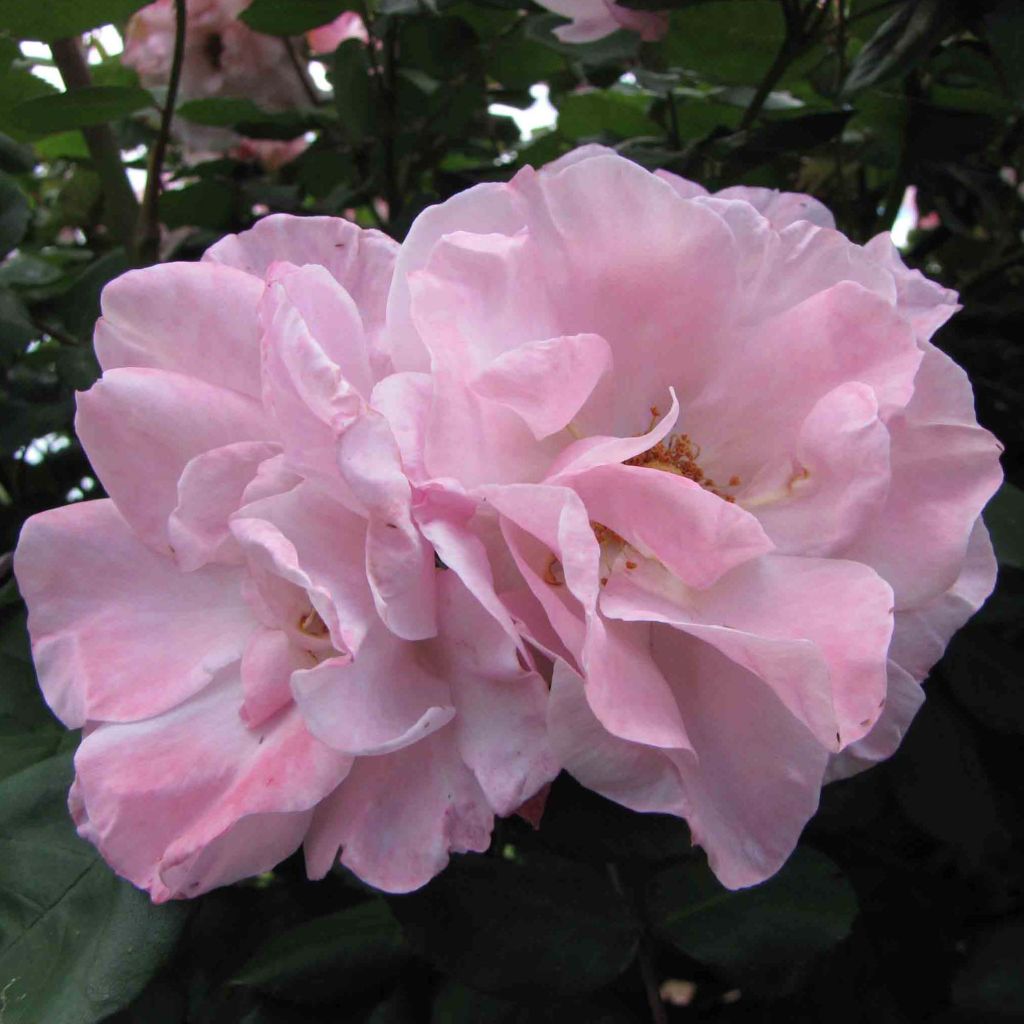

Rosa x floribunda Clair Matin - Climbing Rose
Rosa x floribunda Clair Matin - Climbing Rose
Rosa x floribunda Clair Matin 'Meimont'
Meimont, Floribunda Rose
This item cannot be shipped to the selected country
Delivery charge from €5.90
Delivery charge from €5.90
Delivery to Corse prohibited
More information
Schedule delivery date,
and select date in basket
This plant carries a 24 months recovery warranty
More information
We guarantee the quality of our plants for a full growing cycle, and will replace at our expense any plant that fails to recover under normal climatic and planting conditions.
From €5.90 for pickup delivery and €6.90 for home delivery
Express home delivery from €8.90.
From €5.90 for pickup delivery and €6.90 for home delivery
Express home delivery from €8.90.
Delivery to Corse prohibited: UE law prohibits the import of this plant from mainland France to Corse as part of the fight against Xylella fastidiosa. Please accept our sincere apologies.
More information
Does this plant fit my garden?
Set up your Plantfit profile →
Description
The 'Clair Matin' Rose is a beautiful achievement by the rosarian Meilland, an excellent variety with clustered flowers dating back to 1960 that has not lost any charm. A beautiful, exuberant, and flexible bush, it can be guided on support and will cover it in a few years as its growth is rapid. Its beautiful semi-double dog roses, initially a fairly bright salmon pink, quickly fade, losing the orange blush that masks a slightly cooler pale pink background. Their discreet fragrance is compensated by the earliness and generosity of this plant, which always offers a few flowers in summer before delivering superb autumn flowering. 'Clair Matin' should not lack food, water or sunlight to reach its full potential.
The climbing rose 'Clair Matin' or 'Meimont', also known as Climbing Clair Matin, belongs to the floribunda group and flowers in clusters on the current year's shoots. It is a French creation rewarded with the Gold Medal at Bagatelle in 1960, the same year of its introduction, and is still highly appreciated for its floribundance and vigour. It is a sarmentous rose with a flexible habit and strong, very thorny stems, reaching a height of 1.80m (6ft) and a width of 1.20m (4ft), and up to 3m (10ft) in height if trained on a support. The remarkably abundant flowering has two peaks. It starts in May, depending on the climate, and again in October. Some bouquets of flowers are produced more sporadically during the hottest months. Long pointed salmon pink buds, surrounded by green bracts, open into semi-double cups, 5-6 cm (2in) wide, formed by 15 petals arranged informally around a beautiful heart of yellow stamens. The deciduous foliage is tough, dark green glossy, and quite healthy, although it can be susceptible to blackspot when the summer is hot and humid.
'Clair Matin' enters a garden one day, like spring arrives, in an explosion of freshness. Truly charming and generous, it forms a simple and highly ornamental bush at the back of a flowerbed. It is easy to train on a pole, a small arbour, a slightly shaded wall or a column. Like other large roses, such as Iceberg or Palais Royal, with which it blends well, it is incomparable for giving a touch of abandonment planted above overly strict flowerbeds. It is an ideal companion for an old fruit tree, a small pillar, and the cabins to which it gives great charm. Trained on an arch, it will be an interesting structural element in an "English-style" garden. As it is easy to maintain a bushy habit, it can also be planted in a mixed hedge, accompanied by botanical roses (R.complicata, R. Hansa, R. moyesii), viburnums, mock oranges, hibiscus or lilacs.
Report an error about the product description
Rosa x floribunda Clair Matin - Climbing Rose in pictures
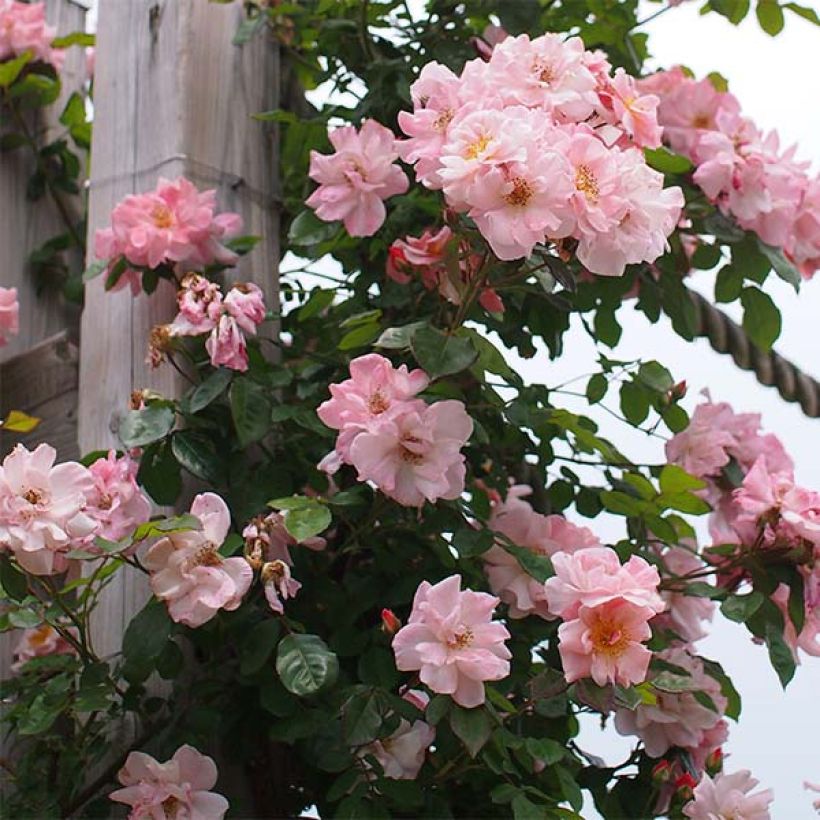

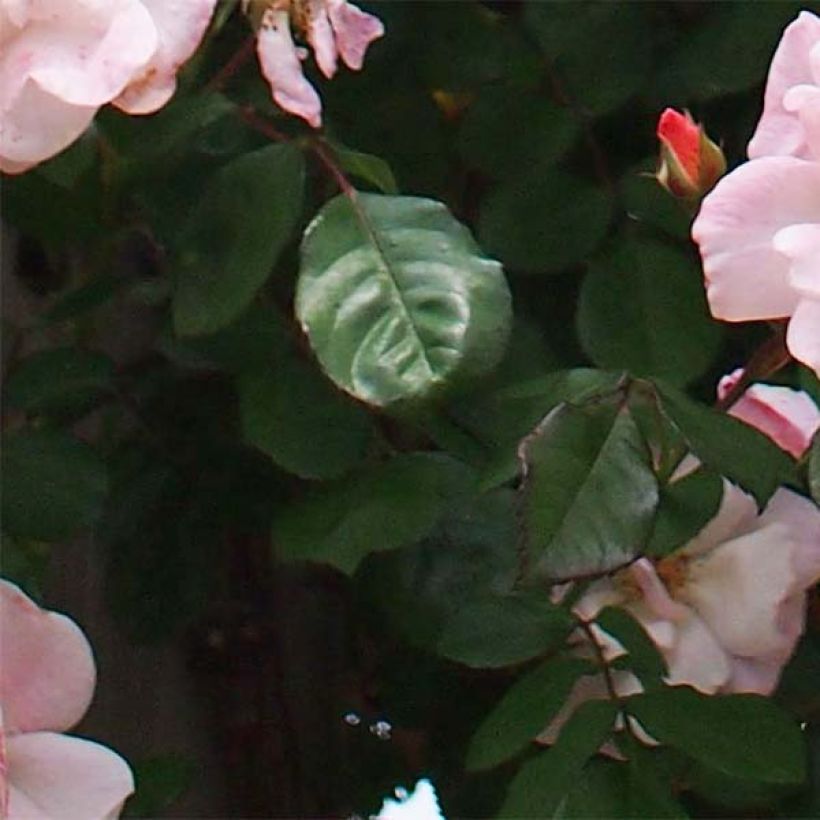

Plant habit
Flowering
Foliage
Botanical data
Rosa
x floribunda
Clair Matin 'Meimont'
Rosaceae
Meimont, Floribunda Rose
Cultivar or hybrid
Rosa canina Laxa (4L/5L pot, Wrapped bare root)
Other Climbing Roses
Planting and care
Plant the 'Clair Matin' rose from November to March in ordinary, well-loosened soil. Roses prefer heavy rather than light clay soils that are rich in nutrients. In soil that is too sandy, too compact or too dry in summer, it is preferable to bury potting soil, decomposed manure or compost at the bottom of the planting hole. However, this rose dreads waterlogged soil in winter. Plant it in a very sunny spot, or in mid-shade in hot climates. Roses are greedy plants, so a specific dose of fertiliser will be beneficial at the start of vegetation and then regularly throughout the flowering period. To encourage flowering, remove spent flowers regularly. Floribunda varieties of rose are more vigorous and more floriferous than large-flowered varieties. For this reason, cut back the stems by about a quarter of their length (4 to 6 buds from the base of the stem) at the end of winter. Always prune above an outward-facing bud so that the bush fills out and the branches do not become tangled in the centre.
Roses can develop unsightly stains at the end of summer, but they are harmless and natural.
Planting period
Intended location
Care
-
, onOrder confirmed
Reply from on Promesse de fleurs
Roses by purpose
Haven't found what you were looking for?
Hardiness is the lowest winter temperature a plant can endure without suffering serious damage or even dying. However, hardiness is affected by location (a sheltered area, such as a patio), protection (winter cover) and soil type (hardiness is improved by well-drained soil).

Photo Sharing Terms & Conditions
In order to encourage gardeners to interact and share their experiences, Promesse de fleurs offers various media enabling content to be uploaded onto its Site - in particular via the ‘Photo sharing’ module.
The User agrees to refrain from:
- Posting any content that is illegal, prejudicial, insulting, racist, inciteful to hatred, revisionist, contrary to public decency, that infringes on privacy or on the privacy rights of third parties, in particular the publicity rights of persons and goods, intellectual property rights, or the right to privacy.
- Submitting content on behalf of a third party;
- Impersonate the identity of a third party and/or publish any personal information about a third party;
In general, the User undertakes to refrain from any unethical behaviour.
All Content (in particular text, comments, files, images, photos, videos, creative works, etc.), which may be subject to property or intellectual property rights, image or other private rights, shall remain the property of the User, subject to the limited rights granted by the terms of the licence granted by Promesse de fleurs as stated below. Users are at liberty to publish or not to publish such Content on the Site, notably via the ‘Photo Sharing’ facility, and accept that this Content shall be made public and freely accessible, notably on the Internet.
Users further acknowledge, undertake to have ,and guarantee that they hold all necessary rights and permissions to publish such material on the Site, in particular with regard to the legislation in force pertaining to any privacy, property, intellectual property, image, or contractual rights, or rights of any other nature. By publishing such Content on the Site, Users acknowledge accepting full liability as publishers of the Content within the meaning of the law, and grant Promesse de fleurs, free of charge, an inclusive, worldwide licence for the said Content for the entire duration of its publication, including all reproduction, representation, up/downloading, displaying, performing, transmission, and storage rights.
Users also grant permission for their name to be linked to the Content and accept that this link may not always be made available.
By engaging in posting material, Users consent to their Content becoming automatically accessible on the Internet, in particular on other sites and/or blogs and/or web pages of the Promesse de fleurs site, including in particular social pages and the Promesse de fleurs catalogue.
Users may secure the removal of entrusted content free of charge by issuing a simple request via our contact form.
The flowering period indicated on our website applies to countries and regions located in USDA zone 8 (France, the United Kingdom, Ireland, the Netherlands, etc.)
It will vary according to where you live:
- In zones 9 to 10 (Italy, Spain, Greece, etc.), flowering will occur about 2 to 4 weeks earlier.
- In zones 6 to 7 (Germany, Poland, Slovenia, and lower mountainous regions), flowering will be delayed by 2 to 3 weeks.
- In zone 5 (Central Europe, Scandinavia), blooming will be delayed by 3 to 5 weeks.
In temperate climates, pruning of spring-flowering shrubs (forsythia, spireas, etc.) should be done just after flowering.
Pruning of summer-flowering shrubs (Indian Lilac, Perovskia, etc.) can be done in winter or spring.
In cold regions as well as with frost-sensitive plants, avoid pruning too early when severe frosts may still occur.
The planting period indicated on our website applies to countries and regions located in USDA zone 8 (France, United Kingdom, Ireland, Netherlands).
It will vary according to where you live:
- In Mediterranean zones (Marseille, Madrid, Milan, etc.), autumn and winter are the best planting periods.
- In continental zones (Strasbourg, Munich, Vienna, etc.), delay planting by 2 to 3 weeks in spring and bring it forward by 2 to 4 weeks in autumn.
- In mountainous regions (the Alps, Pyrenees, Carpathians, etc.), it is best to plant in late spring (May-June) or late summer (August-September).
The harvesting period indicated on our website applies to countries and regions in USDA zone 8 (France, England, Ireland, the Netherlands).
In colder areas (Scandinavia, Poland, Austria...) fruit and vegetable harvests are likely to be delayed by 3-4 weeks.
In warmer areas (Italy, Spain, Greece, etc.), harvesting will probably take place earlier, depending on weather conditions.
The sowing periods indicated on our website apply to countries and regions within USDA Zone 8 (France, UK, Ireland, Netherlands).
In colder areas (Scandinavia, Poland, Austria...), delay any outdoor sowing by 3-4 weeks, or sow under glass.
In warmer climes (Italy, Spain, Greece, etc.), bring outdoor sowing forward by a few weeks.


































